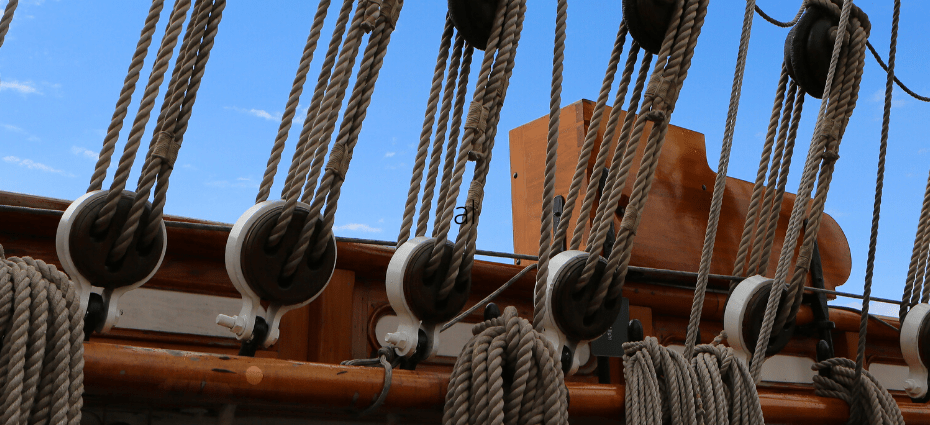Various educational experts refer to the school system as an outdated factory model. It’s compared with a conveyor belt or factory assembly line, where children pass from grade to grade having injections of knowledge added, then move along to university and finally exit with a degree, but very few employable skills.
Sir Ken Robinson has highlighted how this conveyor belt system kills creativity, by treating everyone the same. He described it as one where “students are educated in batches, according to age, as if the most important thing they have in common is their date of manufacture.”1
The purpose of conveyor belt education is to teach people what to think so they can get a job.
Andrew Pudewa
Home education expert, Andrew Pudewa said, “The purpose of conveyor belt education is to teach people what to think so they can get a job. It’s education for the masses.”2
It’s not necessarily a bad thing if all you want is for your child to be shaped into a cog that works for others in an industrial economy, but the world has moved on.
If you are reading this article, I imagine you are already looking at alternative educational models for your child, like home education, cottage schooling, online learning or a blended combination of these models. You aspire to a better future for your child/ren. You already have the courage to do things a little differently than the masses and so maybe this post will encourage you to follow your convictions one step further – and to encourage your child to follow a customised post-school pathway or timeline.
Jumping off the educational conveyor belt, opens up worlds of new opportunities.
More and more parents are realising that NOT following the norm holds great benefit for their children. Jumping off the conveyor belt, opens up worlds of alternative opportunities and exposes children to unique experiences that can shape their life paths for good and help them avoid pursuing conveyor-belt educational paths that might disappoint them.
Kerri Nish shares the testimony of her boys. Her youngest son is an exceptionally intelligent 14-year old who is already academically ready to prepare to write his grade 12 exams, yet he has decided that he will not be pursuing a degree at university. He already runs two businesses and is starting beekeeping too. Kerri says, “He is going to have to make his own way in the world and not look for a job in a corporate.” She imagines that he will probably study business at some future point, along his life path, but for now, they are focusing on broadening his education with a goal to write the GED® as an ‘exit exam’, at a later stage. (A candidate must be age 17 to write the GED®.)
She says that they are not preventing him from studying at university if he wishes, but they see that as something he can do when he is older, has more direction and can pay for it himself.
Her eldest son has an exceptional story. He completed high school at a private school “and achieved A and A Star AS and A levels.” Kerri explains. He wanted to study either Biomedicine, Astrophysics, Veterinary Science or Aeronautical Engineering or alternatively, to open a sailing school in Mozambique. After he revealed this in an interview at school, “the headmaster shook his head and said that he had never had a head boy with such diverse interests and had never seen one who was happy to live in a hut in Mozambique!” Kerri tells.

Instead of following the educational conveyor belt to university, six weeks after his final exams, his parents sent him off on a one-way ticket to Perth with AUD $120 in hand. He worked for a year, returned the next year and earned himself some sailing qualifications. He then secured a job in the US. It’s an extraordinary accomplishment as Kerri explains: “Four years out of school and he has landed a job as a captain on a tall ship, which takes ‘varsity students around the world. The company does not employ anyone under the age of 27. He turned 22 just five months after starting with them and achieved his captain’s hat the month he turned 22.”
He was accepted to study Veterinary Science (something that only top students ever achieve), but his parents persuaded him that he shouldn’t accept this offer to study as they knew that field was not his passion. As it turns out, they were right. He no longer desires to be a vet.
Three multi-millionaires all advocated studying later in life.
Kerri explains, “He has worked for three multi-millionaires, who have all taken him out of the workspace to really talk to him seriously about their journeys and give him advice on his own journey. Every single one of them has advocated studying later in life, and getting more life experience earlier on! This was what we were thinking too. It was good to hear the same sentiments from others! One was an American, one a New Zealand German and the other, an Italian.”
“So, with my youngest,” Kerri continues, “we will follow the GED® route for starters. Then he can explore where he wants to go. In this age, where so many parents see a degree as the end of their responsibility, I am always looking out for people who do things differently and are finding successful routes to do so.”
Kerri and her sons have recognised that life experience offers valuable lessons and opportunities at a fraction of the cost of a university degree, which might later be ‘unwanted’. This experience can give children insight about themselves and potential career paths, expose them to discerning mentors and help them make wiser decisions, than if they had just stayed on the educational conveyor belt and followed the most-beaten path.
Albert Einstein is attributed with saying: “The one who follows the crowd will usually get no further than the crowd. The one who walks alone, is likely to find himself in places no one has ever been.”
You can become our next GED® success story.
1. Robinson, M. Trivium 21C: Preparing Young People for the Future with Lessons from the Past, London: Independent Thinking Press, 2013
2. Pudewa, A, Freedomship Education Paradigm, MP3 download, Excellence in Writing, accessed 2020
